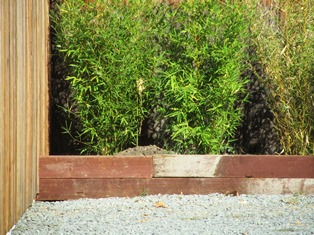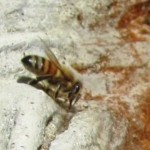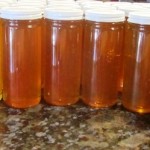Point of Departure When a Loved One Has Passed
After the news of the recent passing of my only sibling and the last member of my nuclear family, I moved an old chair beneath a plum tree on my Henny Penny farmette near the hives to listen to the hum of bees and read the Georgics of Virgil.
For me, reading verse serves as a point of departure to an inward journey where I can find calm, utter silent prayers, seek forgiveness, spiral forth blessings, and come to terms with what has been left unspoken. In time, I find it is possible to surrender to what is and accept what cannot be changed.
- Some plant flowers in remembrance of a deceased loved one. Pictured is the “Honor” rose
Beneath the dense canopy of the plum, I lost myself in reading the ancient verses of Virgil. The reclusive Roman scholar wrote his long poem of Georgics in four parts around 70 BCE. Virgil’s verses draw readers into pastoral landscapes where he describes nature, the seasons and their attributes, as well as the fullness and sadness of life. I believe my brother would appreciate these verses that show loss as an integral part of the natural world and our human existence. For me, Virgil’s poetry connects the mundane with the lofty.
Virgil’s verses speak to repetitive cycles–nature’s seasonal shifts occurring over the landscape, man’s domesticated animals going about their business, bees gathering pollen and nectar to bring forth honey. Some see these verses as primers on agricultural work and animal husbandry. What I derive from these poems is a loftier meaning: as much as change comes into our lives (whether through sorrow, suffering, loss, or war), the big picture is this–life goes on and there is sweetness for us to find.
In Georgics IV about beekeeping, Virgil writes:
“First find your bees a settled, sure abode where neither winds can enter ( winds blow back the foragers with food returning home)
Nor sheep or butting kids tread down the flowers, Nor heifer wandering wide upon the plain
Dash off the dew, and bruise the springing blades . . . .
The above is from another translation, but A.S. Kline offers a beautiful English translation from the Latin of Georgic IV, see, https://www.poetryintranslation.com/PITBR/Latin/VirgilGeorgicsIV.php
Virgil grew up in the rural Italian countryside where the peasantry lived close to the land. When the civil wars during Virgil’s lifetime caused many farms to go into states of disrepair and farmers to lose their land, Virgil’s family farm became a casualty of the times.
It’s believed that he subsequently regained his farm but the experience of loss had become indelibly imprinted in his consciousness because his writings deeply reflect the sadness of those who’d suffered loss. Perhaps because the reclusive bachelor and scholar did not enjoy robust health himself, Virgil wrote that the greatest wealth is health.
I thought about that as I sat listening to my bees and the sounds of nature around me. My brother had enjoyed good health before marching with other Marines through Vietnam’s fields of Agent Orange. In the last year of his life, health issues concerned him. But he didn’t dwell on that–farmers and soldiers seldom do.
I’m sure if he’d had a choice in the matter, he’d have preferred to breathe his last breath while fishing, surveying the expanse of a newly harvested field, or walking in the woods. Instead, he passed away while removing a sapling that a neighbor wanted pulled from her flowerbed. Death found him lying under an expansive sky on side of the road, the sun on his face, his breath gone, his heart still.
Perhaps, he was ready. Fields and woods, rivers and streams, farms and fresh air have always called to me and my brother like some ancient voice in our DNA.
As children during this time of year in late summer, we would race to the nearest watering hole to wade, throw rocks, or fish. Never uttering a word, we could spend hours sitting on a river bank in dappled shade, poles in hands, eyes on bobbins hoping for a nibble. Or, we would lie in a field of tall grain watching the clouds merge, split, and float across the expansive sky until they’d disappeared completely. It’s how I imagine my brother’s soul departed that fateful day–guided to the Great Beyond by a Spectacular Unseen Hand.
In the days ahead, I will take comfort in reading words written by my favorite observers of life like Virgil and philosophers of the world, both past and present. I will read favorite passages in sacred texts. And I’ll refer to my own books on meditation and ritual. I hope the process empowers me to come to an untroubled, tranquil acceptance of the culmination of his life. Ready to face what will be my destiny, too. May you rest in eternal peace, Brother.
_____________________________________________________________________

More than 150 rituals for sound mind, strong body, and meaningful connections to the people around you
https://www.amazon.com/dp/B0719HHVRJ/ref=dp-kindle-redirect?_encoding=UTF8&btkr=1
Twenty Water Conservation Tips
California is in a historic drought. It’s our fourth year of below-normal rainfall and scientists, city governments, state lawmakers, and communities worry that this drought could run longer, perhaps even becoming a mega-drought. Wells are going dry, reservoirs in the state are lower than they’ve been in years, and water levels in rivers, lakes, and streams have shrunk.
Farmers have a right to be worried that their acreage may have to lay fallow. And what about the fruit and nut orchards? The Sierra snow pack that supplies much of the water to the Central Valley and Bay Area (where much of California and the nation’s food is grown) remains a fraction of what it has been in non-drought years. Salmon runs are being impacted. Water is getting more scarce and more expensive. And less food produced means higher food prices.
Recently, Governor Jerry Brown mandated water conservation throughout the state. Communities are implementing drastic measures to force their citizens to cut water use. But that doesn’t necessarily mean lower water bills if our communities have to buy water to make up a shortfall. Each of us must do our part.

Environmentalists value bamboo for its drought tolerance and landscape appeal; stone is an excellent element for zero landscaping and can be used with succulents or cacti
Twenty Tips to Cut Water Use
!. Install low-flow toilets and tub, sink faucets, and shower heads.
2. Use a front-loading washer rather than a top-loading version. The front-loading machines use roughly 20 gallons per load versus the 40 gallons of top-loading machines. We installed our energy-efficient front-loading washer when we moved in.
3. Wash laundry less often and make sure you set the machine for the right size load.
4. Take shorter showers with the drain closed. Capture the gently-used water in pails to recycle.
5. Use your energy-star dishwasher for cleaning dishes, glassware, and pans. You will use less water than by washing dishes by hand. But run the dishwasher only after it is full, not half-empty.
6. If you have a pool or hot tub, use a cover on it to prevent evaporation of water.
7. Wet your toothbrush, but then turn off the water as you brush your teeth.
8. Capture gray water (from the dishwasher, washing machine, shower, and sink). Gray water is gently used household water, not water from the toilet or sewer. Have a plumber install a gray water system to trees and plants on your property.
9. Completely turn off faucets to avoid drips. Also, fix any leaky faucets or water pipes.
10. Collect rainwater in plastic barrels and keep covered to eliminate the potential for mosquitoes breeding in the water.
11. Shower less often. Flush the toilet less often and never to flush away an insect or tissue. Use a lidded-waste can instead.
12. Use the broom to clean the sidewalk and driveway, not the garden hose and water.
13. Stop watering the lawn. Consider removing the lawn in favor of a landscape with drought-tolerant and indigenous plants. Or zeriscape, using bamboo, succulents, cacti, and stone.
14. Buy and use green products with the EPA-partnered WaterSense label.
15. Don’t throw out leftover ice cubes; use them to water a plant.
16. Never use running water to thaw meat or fish. Defrost overnight in the refrigerator.
17. Insulate water pipes to get hot water faster instead of running water through the faucet.
18. Install an instant water heater appliance under the sink to get hot water instantly rather than let the faucet run until the water gets hot.
19. When on vacation away from home, turn off the water softener to conserve water.
20. Recycle kitchen waste instead of putting it down the garbage disposal and running water. That recycled waste can become valuable compost for your garden and keeps it out of the septic system.
 Facebook
Facebook Goodreads
Goodreads LinkedIn
LinkedIn Meera Lester
Meera Lester Twitter
Twitter









